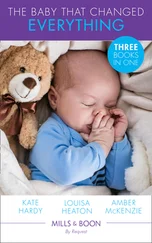She had found herself marooned, looking for work. Unable to get auditions. The classes she went to were at The Place, the home of the school she’d trained at. She attended as many as she could afford; she aimed to make three a week but she could feel her fitness slipping.
With every year that passes an out-of-work dancer is more prone to injury, less fit. No company would take her on, given the commercial stuff she’d been doing since qualifying. They would never choose to see her at an audition over an eighteen-year-old. Her CV was laughable and for every part that came up, hundreds and hundreds of women applied. There was no hope for her. And everyone she spoke to exhaled through pursed lips and lowered their eyes.
The Place was running an annual festival of new work. This was, she felt, the last push. She stepped up the classes. Started going daily. She could feel her muscles tightening, her Achilles tendons lengthening. She would have to pay her dancers, rent the studios to work in, conceive the piece and teach it without any support. But The Place would put it on stage and give her a journalist to review it.
She told her agents at the massage company that she would take work in any hotel at any time of the night. Her phone beeped and the text came and she’d have an hour and a half to get ready and get across town. She’d be sitting at her kitchen table, planning for the show, or watching TV in her pyjamas with Pete, or sitting in the pub drinking soda water and lime, and the text would come and she would have to snap herself out of her life and make the journey towards becoming someone else.
She made her money and she booked the studio and she paid her dancers and she was exhausted to the point of collapse, but much more alive than before. Her muscles on fire when she walked down the snail-grey steps of her flat; going backwards to deal with the cramps in her calves.
She conceived a piece for a cast of four women who moved in interlocking bursts and waves across the floor. Pain and poverty and struggle. Family and independence. It was well reviewed and although she received no funding off the back of it, got no parts directly, her name rang out a little louder in the audition process. It seemed to the people who glanced over her CV that although Becky had taken an unusual path, she was doing things her own way and was obviously committed.
Pete hated all the time she was spending in rehearsals, hated her being on call every night. He’d got his CSCS card and found a few weeks’ work labouring. But he shrank from the banter onsite. It made him feel like an impostor in his own sex. He wanted to take Becky out with the money he made. But she was never around. The work dried up after three weeks, and he was back on the dole.
Every time they have a row it makes him cry. He doesn’t know how it happens, but as soon as her tone hardens, he feels this heat behind his face like being punched from the inside, and tears come and his throat swells and he gets all snotty and stupid. She freezes when she sees him sob, ices over in an instant. She never cries in front of people, she thinks that it’s manipulative.
Pete is ashamed of his behaviour, but he doesn’t really recognise it. When she’s not around he feels chirpy and fine and reasonable. But as soon as they’re together he can’t think straight and he behaves like a madman.
When she asks him about it, it just makes him angry and embarrassed and he gets silent and visualises shooting himself in the face. Over and over. Shooting himself in the mouth, in the temple, in the eye. Over and over.
Bang.
He’s been going through her things. She knows because the most recent batch of letters to her parents that she keeps in the box in her wardrobe are all in the wrong order and the pile of business cards she printed for her massage work is half the size it should be. But something keeps her coming back.
They kiss in the supermarket and smoke spliffs in bubble baths, but his moods are getting worse and worse, and she begins to keep her distance. When he feels her pulling away from him, he panics, pushes harder. Turns up unannounced outside her flat. Too embarrassed to ring the bell in case he has to talk to her flatmate, he waits on the dark balcony, smoking. Imagining her moving through hotel rooms, hearing the squelch of other men’s parts in her hands. Red-eyed from the weed with a hacking cough that bends him double.
When she’s at work he punches walls until his knuckles bleed and later, in the pub, his wounds seeping and hardening, he hates her for what she’s done to him but still can’t wait to see her, can’t wait to hold her in his arms.
The jobcentre’s killing him. Becky’s love is killing him. Coming home to his childhood bedroom is killing him. Everything is killing him, and yet his life just keeps on dragging; the morning comes and here he is, awake again. Alive.
After her piece went on at The Place, Becky attended some open auditions: a hundred girls in a room, picked off one by one and told to go home. The day split into three sections, a ballet class in the morning to check for correct training. Then, the teaching and performance of a routine to check body and temperament. And finally an improvisation, to check whether the dancers were knowledgeable or creative enough. The whole day racked with pressure. Body like a catapult, pulled right back. Some of the auditions she had to pay to attend. Becky had been out of this world for three years, but was so desperate to shine that she worked harder than the others. No matter the effort though, she was still too old. Three months later, even after attending open auditions every single day, Becky couldn’t get an audition for a part in a company. But she had made herself visible, and she was a dancer again.
As autumn reared its golden mane and shook the leaves down from the branches, Becky got a call from a rehearsal director who had a show about to open at Sadler’s Wells. They needed a swing.
She had to sit in rehearsals and learn every part from just watching. The choreographer had no time to teach her the phrases. Her arms and her legs were alone in the room. Along with two other swings, she had to learn every single part in the piece, with no support and for even less money than everyone else. The other dancers in the company ignored them, because they weren’t worth their time, and because they knew that at some level they would be hoping for falls, sickness, injuries. But even so, Becky was happier than she’d been in years.
When Nima got sick, Becky stepped in. There was something nasty going round. She had one day to prepare for the part. Nima was too ill to teach her, so she was entirely alone with the transition. Ryan and Mahesh got sick the next night. All three swings had to be ready. Half-sick themselves from stress and fatigue, but burning up. Elated.
Becky stands outside Sadler’s Wells Theatre finishing her cigarette. She drops the butt, stubs it out with her toe and heads back through the stage door, down into the depths of the building.
In the corridor outside the dressing rooms, she paces for a while, then sits down heavily on the floor, pulls her knees up to her chest, rests her head on her knees and closes her eyes. She tries to calm her nerves but she can’t stop tapping her feet, which means she keeps kneeing herself in the forehead.
The other two swings walk into the corridor. Becky looks up, stands. ‘Hi, guys,’ she says, brushing the backs of her legs off.
Patrice has calm brown eyes, smooth skin. His neat, short hair curls up and clings to his head. His legs are long, his hips are high, his chest is broad; he has a small mouth that is often pouting in disapproval. He walks like a supermodel. Marina, beside him, is small and muscular, solidly built, but all her edges are soft. Her red hair spills out in a perfect circle when she lets it. She hates nobody, has complicated relationships with everyone she sleeps with and writes furiously in her diary at night, secretly imagining that one day, after she is dead, it will be published.
Читать дальше












